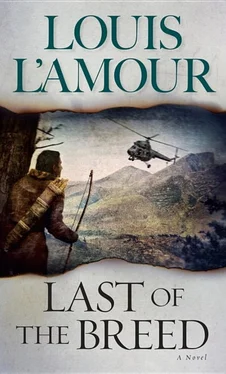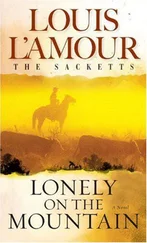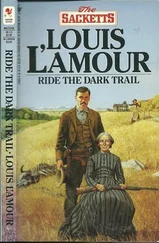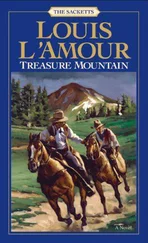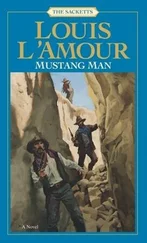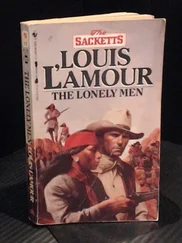Louis L'Amour - Last of the Breed
Здесь есть возможность читать онлайн «Louis L'Amour - Last of the Breed» весь текст электронной книги совершенно бесплатно (целиком полную версию без сокращений). В некоторых случаях можно слушать аудио, скачать через торрент в формате fb2 и присутствует краткое содержание. Город: New York, Год выпуска: 2010, ISBN: 2010, Издательство: Random House Publishing Group, Жанр: Триллер, Историческая проза, Приключения про индейцев, на английском языке. Описание произведения, (предисловие) а так же отзывы посетителей доступны на портале библиотеки ЛибКат.
- Название:Last of the Breed
- Автор:
- Издательство:Random House Publishing Group
- Жанр:
- Год:2010
- Город:New York
- ISBN:978-0-553-89935-1
- Рейтинг книги:3 / 5. Голосов: 1
-
Избранное:Добавить в избранное
- Отзывы:
-
Ваша оценка:
- 60
- 1
- 2
- 3
- 4
- 5
Last of the Breed: краткое содержание, описание и аннотация
Предлагаем к чтению аннотацию, описание, краткое содержание или предисловие (зависит от того, что написал сам автор книги «Last of the Breed»). Если вы не нашли необходимую информацию о книге — напишите в комментариях, мы постараемся отыскать её.
Last of the Breed — читать онлайн бесплатно полную книгу (весь текст) целиком
Ниже представлен текст книги, разбитый по страницам. Система сохранения места последней прочитанной страницы, позволяет с удобством читать онлайн бесплатно книгу «Last of the Breed», без необходимости каждый раз заново искать на чём Вы остановились. Поставьте закладку, и сможете в любой момент перейти на страницу, на которой закончили чтение.
Интервал:
Закладка:
He lowered his tone. “It is you and your father? What happened to the others?”
“Scattered. I do not know where.”
They were on the shore of the bay. She paused, looking back. Only the few lights were visible.
“Yakov? Have you heard of him? Of Joe Mack?”
He chuckled. “Who has not? He’s leading them a dance, I tell you. Has half of official Siberia strung out, looking for him. One part is afraid the others will find him first.
“He’s off to the northeast now, and they are mustering men. I would go to help him if I knew how, but he’s doing enough by himself.”
“Who are you, Yakov?”
“It is better you do not know. Let us say that I love Mother Russia but I do not love her government. I do not like being tied to a certain piece of work. I am a wanderer, a free soul, you might say. As you know I have helped people escape from them. Perhaps I am one of the damned capitalists they talk about, but I’ve no capital.”
“But you’re not alone?”
“Oh, no! There are others of us, but we keep out of sight. That little thing just now. I do not like such things because they attract attention.”
He looked up the steep path. “You climb this often? With a pack?”
“My father has done it, but I do not wish it any longer. His heart is bad, Yakov, although he believes I do not know it. He stops outside the door to recover his breath before he comes in. If I had not come tonight, he would have come in the morning.”
They walked on, and then at the top of the trail and within sight of the cabin she stopped again. “Yakov, we are going to try to leave the country.”
Briefly, she explained, adding the story of Bocharev and his son.
“Bocharev?” He was surprised. “He is a good man, Natalya, and a strong man. He can do it if he wishes. He can send you over the border. Not even Zamatev has his power, or Shepilov.” He nodded his head. “Yes, it is good that you should go. That is why I am here.”
“Why? Why are you here? What do you mean?”
“The order has been issued by Zamatev for your arrest yours and your fathers. You cannot wait. You must go tonight.”
Chapter 32
Stephan Baronas got to his feet as they entered. His smile was warm as he greeted Yakov. “Come! Sit by the fire! It is good to see you!”
“I am afraid there is little time for sitting, comrade. You are to be arrested. You must leave this place at once.”
“Leave it?”
“You have no choice. Zamatev has ordered your arrest. He is picking up all those who had any contact with the American. You and your daughter are first on the list.”
Natalya was gathering their clothing into bundles, collecting what food they had. The packs would be large, but the food would disappear quickly, lightening their load.
She glanced at her father. How would he ever make it? Or would he? Over the mountains in the dead of winter? At least he would not die in prison.
He must not die! He had too much to offer, he was too good a man, and he was her father. He was all she had.
All? She thought of Joe Mack. Was there really anything there? Or was it all a dream? An impossible dream?
What had passed between them? What had been said? What promised? She shook her head, amazed at herself and at him. There had been nothing, really. Nothing one could put a finger on and say this was the moment.
There had been no words of love, no passionate clinging together, only a quiet understanding, something rich and warm and beautiful. Somehow, from the moment they met, there had been no doubt. She had not really considered it; she had not thought about it or dreamed of it. Suddenly he was there and she knew.
Now, packing swiftly, she puzzled over it. What had he said? What had he done? How had he aroused this feeling in her? She had always been a cool, sensible sort, but this was a man on the run, a man of an alien people, even of a different race.
He was an Indian, what had been considered a savage people. That, he said, was true no longer of his people, but it was true of him.
Could he be savage? She thought of that and admitted it was more than possible. How else could he exist out there in the wilderness? In the snow? And now, with the terrible winter more than half gone, he was still alive, still out there, still somehow avoiding capture.
She turned on Yakov. “Could it be morning? A few hours’ sleep would prepare us for it.”
He shrugged. “The further you are away, the better. I can come with you but a little way. I must not be found here, or found at all,” he added, somewhat grimly. “I can help you for a few miles, and then I must be away.”
“Father? Get some sleep. We all must.” She turned to Yakov. “Before daybreak, then?”
He shrugged. “It is a risk.”
Yakov built up the fire; then he took an AK-47 from his pack and checked it. The sound of the action opening and closing was ominous in the small cabin.
Her father’s weariness was obvious in the quickness with which he slept. She saw Yakov look at him and then shake his head.
She lay down without undressing. There would be no time in the morning. Staring up at the ceiling, she tried to think of what they must do. There was a dim path up through the forest that did not begin until beyond several small clearings. She had walked up that trail no more than a mile, but it led into dense forest. In the summer she would have explored it further, but in this weather, in the winter—
There had been snowshoes in the cabin, and they belonged there. No matter, they must take them. If they escaped, they could send payment for them.
If they escaped—
She lay long awake, staring up into the darkness, lighted only by the flickering flames of the dying fire.
How could they possibly escape? An old man and a young woman, an old man who had never been considered physical.
And even when they reached the border, how could they cross? The river they would reach would not be the Amur but the Ussuri; yet it was a large river, and it would be patrolled.
The opening of the door awakened her, for it let in a cold breath of wind. She sat up quickly. It was Yakov.
“It is time, and we must hurry.”
As she moved to stir up the fire, he stopped her. “The fire is out; the ashes are cold. Leave it that way, and they will not know when we left.”
She was prepared. Her father dressed quickly, and they took up their bundles and went outside. It was snowing, a soft, gentle snow whispering down, covering all.
She led the way up through the trees where they had gathered wood, across a sort of clearing, and then around the huge tree she remembered and into a trail that was only a mere parting between low-growing shrubs.
Yakov turned to look back. The snow was already obscuring their tracks. “In minutes,” he told her, “they will be gone. Let us be moving.”
It was cold and crisp. She moved along, purposely holding down the pace because of her father. The trail wound through the trees, and she found her memory of the first mile was good. “I could become an Indian,” she told herself. “I could even live in the forest.”
The Iodzihe River lay to their right, and the forest through which they were going was cut by a small stream that flowed down to that river. Yakov moved past her. “Let me break trail now,” he said. “I did not know where it began.”
The snow was deep under the trees. What they could see of the sky was overcast and a dull gray. The trees were stark and black against the whiteness of the snow. Not a breath of wind was stirring now, and the forest was very still. Once she saw a bird glide off among the trees, following their same path through the forest.
Many massive oak and maple trees mingled with what her father told her were Korean pine and, of course, birch, with which she was familiar. Steadily, by a winding route, they climbed.
Читать дальшеИнтервал:
Закладка:
Похожие книги на «Last of the Breed»
Представляем Вашему вниманию похожие книги на «Last of the Breed» списком для выбора. Мы отобрали схожую по названию и смыслу литературу в надежде предоставить читателям больше вариантов отыскать новые, интересные, ещё непрочитанные произведения.
Обсуждение, отзывы о книге «Last of the Breed» и просто собственные мнения читателей. Оставьте ваши комментарии, напишите, что Вы думаете о произведении, его смысле или главных героях. Укажите что конкретно понравилось, а что нет, и почему Вы так считаете.
